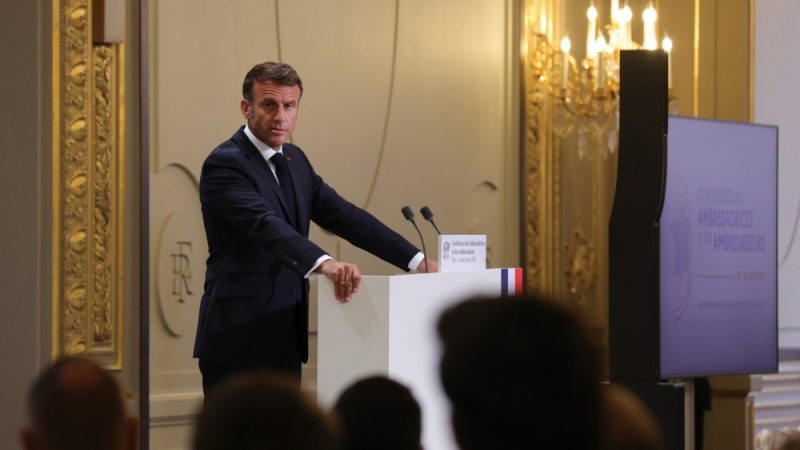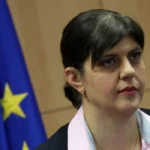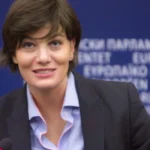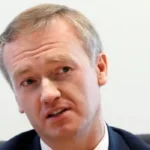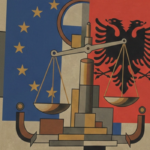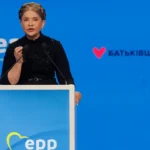In his annual speech to French ambassadors, French President Emmanuel Macron called for institutional reforms in the EU to meet current challenges and maintain Europe’s influence.
Macron spoke for almost two hours on Monday (28 August) at the Élysée Palace on the priorities of French diplomacy. He emphasized that the global political context was becoming more complex and harbored “the risk of a weakening of the West and of our Europe in particular.”
In the President’s view, Europeans are experiencing “an objective thinning out of [their] population, [their] produced wealth, [their] share of world trade” and a “progressive challenge to the international order.”
This is exacerbated by the role of new international powers, the energy crisis and by a “politics of resentment, which in some cases feeds on a newly invented or fantasized anti-colonialism and in other cases on an instrumentalized anti-Westernism.”
An international order shaken by the BRICS and their “desire to create an alternative order” and “Sino-American tensions” have led to the rules of international trade being called into question, Macron said.
More Europe in NATO
Macron again called for “stronger European engagement” in NATO.
“The European pillar [in NATO] is not NATO’s enemy,” he said, but must take “more responsibility” for European defense.
For this, a strengthening of the European defense industry is necessary to “get away from the situation that the Europeans are in a geopolitical minority within NATO.”
However, it is also necessary “to think about European stability in terms of more than just security,” the President continued. He wants to build “a geopolitical Europe”.
To this end, the European Political Community (EPG), created shortly after the start of the war in Ukraine, is a “decisive” factor in the realization of a “Europe of Peace.”
More than forty member states of the EPG will meet in Spain in October for the third time in a year at a summit where they will discuss security, economy, environment and immigration.
Institutional reform of the EU
According to the French President, institutional reforms must also be carried out in parallel with the planned enlargement of the EU, “especially with regard to the Western Balkans”.
“The heart of Europe needs to become more integrated if we are to meet today’s challenges,” he said. “We must therefore be bold enough to accept greater integration in certain areas and perhaps at multiple speeds in this Europe.”
Meanwhile, Macron said the EU must maintain “a firm doctrine” on Russia. Russia cannot and must not win the war in Ukraine.
He acknowledged that pursuing this goal will require “significant financial, diplomatic and capacity investments” over the coming years.
Reform of the political world order
To counteract the West’s decline, the president called for “profound reform of global governance,” including the International Monetary Fund and the World Bank.
This should also include countries that are not currently included, otherwise “we will allow an alternative order to be created and we will marginalize our own system.”
Macron also called again for “courage” to develop “new formats” for cooperation between Europeans and emerging countries, including India, Brazil and South Africa, and “not to commit ourselves to existing formats”.
This article is originally published on euractiv.de

